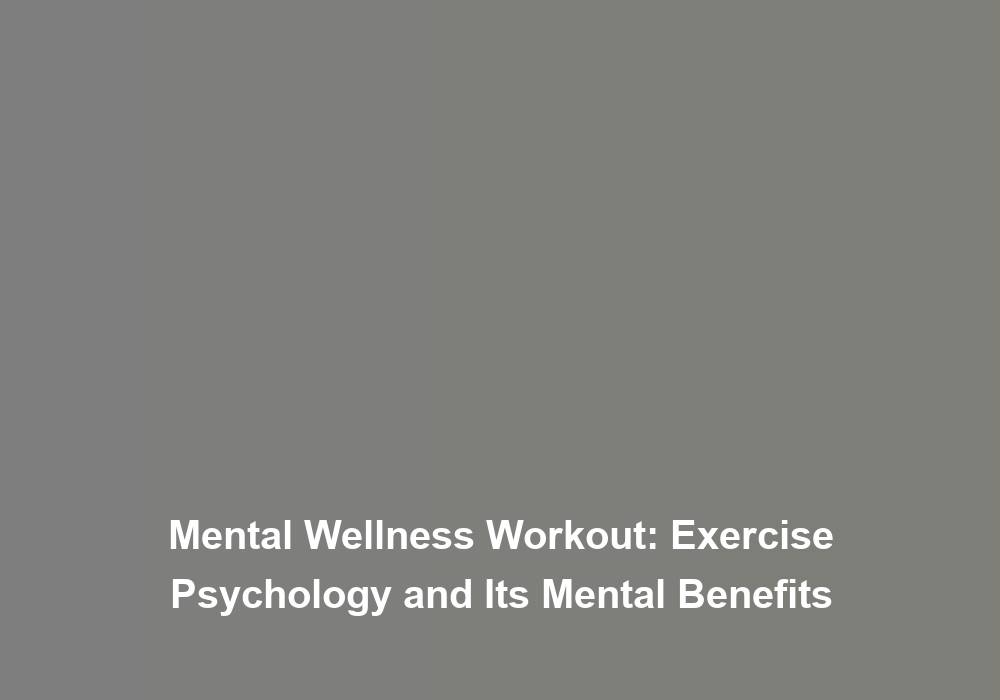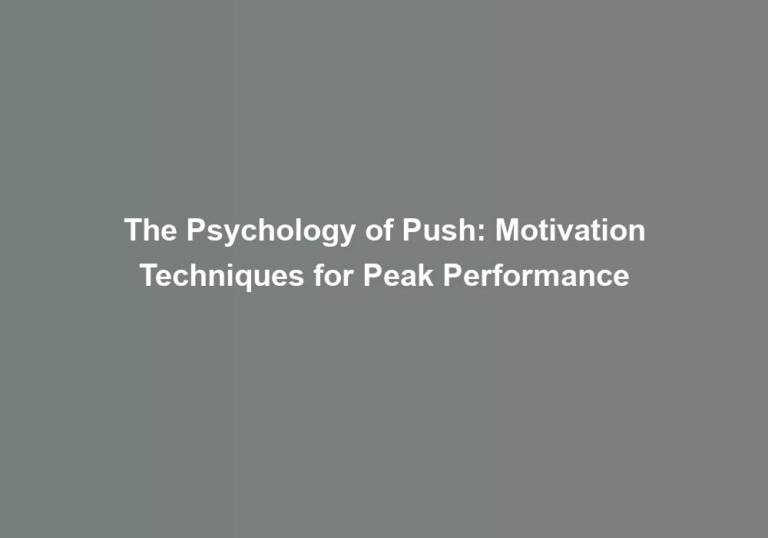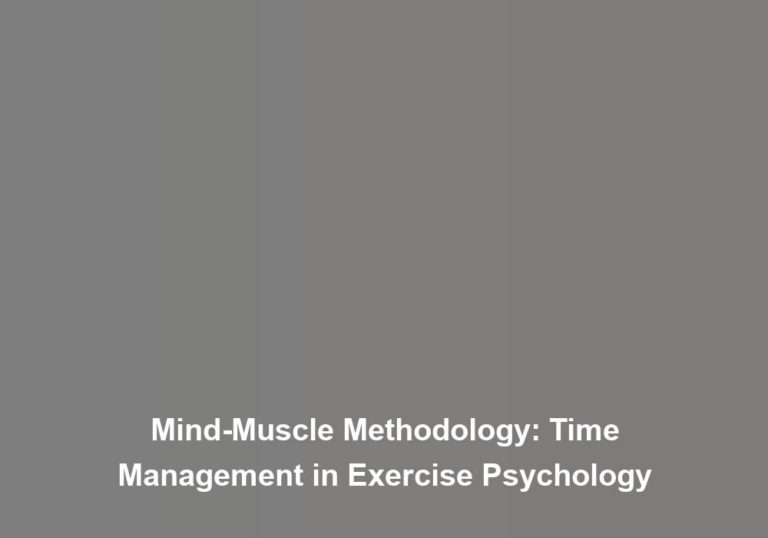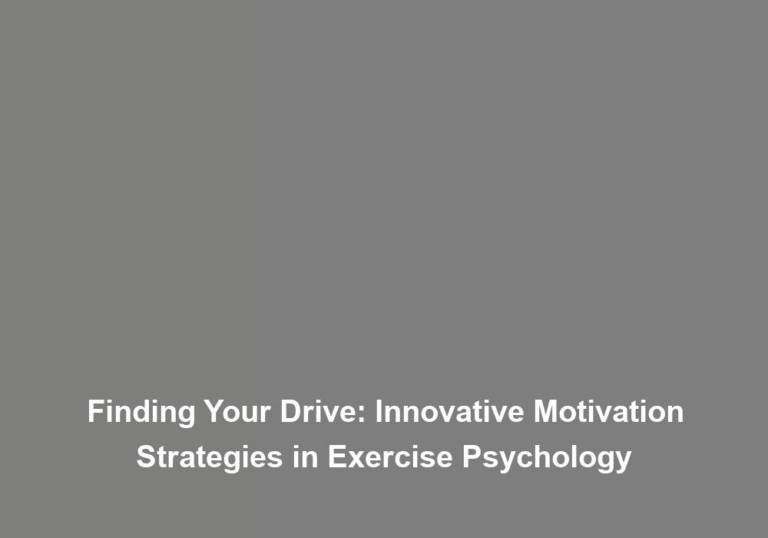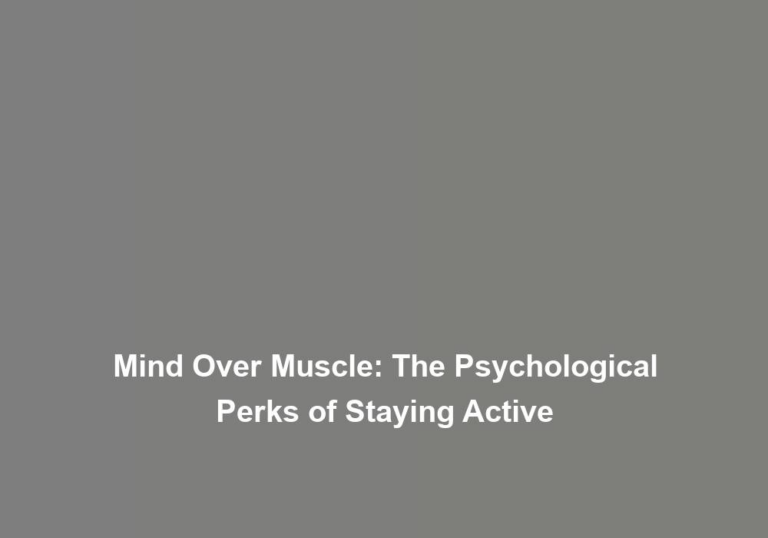Mental Wellness Workout: Exercise Psychology and Its Mental Benefits
You may not realize it, but the psychological benefits of exercise go far beyond just physical health. The connection between exercise and mental wellness is a fascinating and complex field of study that has garnered increasing attention in recent years. The impact of exercise on your mental well-being is profound, and understanding the mechanisms behind it can provide valuable insight into maintaining a healthy mind. As you navigate through the intricacies of exercise psychology and its mental benefits, youG??ll uncover how physical activity can significantly influence your overall mental wellness.
Exercise Psychology: Understanding the Connection
Understanding the connection between exercise and psychology is crucial for comprehending the mental benefits of physical activity. When it comes to exercise motivation, itG??s important to recognize that our behaviors are influenced by our thoughts and feelings. This is where exercise psychology comes into play. It delves into the reasons behind our exercise habits and how to initiate behavioral change.
Have you ever struggled with finding the motivation to stick to an exercise routine? Many people experience this challenge, and itG??s completely normal. Exercise psychology helps us understand the underlying factors that drive our motivation to exercise. By exploring the psychological aspects of our behavior, we can uncover the barriers that prevent us from staying consistent with our fitness goals.
When it comes to behavioral change, exercise psychology provides valuable insights. It offers strategies to overcome obstacles and cultivate a positive mindset towards physical activity. By understanding the psychological principles at play, individuals can develop sustainable habits that lead to long-term success. This knowledge fosters a sense of belonging within the fitness community, as people realize that their struggles and triumphs are shared experiences.
Mental Benefits of Physical Activity
Engaging in regular physical activity can significantly improve your mental well-being and overall quality of life. When you make physical activity a part of your routine, youG??ll experience a range of mental benefits that can positively impact your life. Here are four ways in which physical activity can enhance your mental well-being:
-
Cognitive Function: Regular physical activity has been shown to enhance cognitive function, including improved memory, attention, and decision-making. By engaging in activities like aerobic exercises or strength training, you can boost your cognitive abilities, which can contribute to a sharper mind and improved productivity in your daily life.
-
Emotional Well Being: Exercise has powerful effects on your emotional state. It stimulates the release of endorphins, often referred to as G??feel-goodG?? hormones, which can uplift your mood and reduce feelings of stress, anxiety, and depression. By incorporating physical activity into your routine, youG??ll create opportunities to experience a greater sense of emotional well-being and resilience in the face of lifeG??s challenges.
-
Social Connection: Participating in group fitness classes or team sports can provide a sense of community and belonging. Building connections with others through physical activity can enhance your social well-being, offering opportunities for meaningful interactions and support, which are vital for overall mental wellness.
-
Self-esteem: Engaging in regular physical activity can contribute to a positive self-image and improved self-esteem. As you achieve fitness goals and witness the positive changes in your body, youG??ll likely experience an enhanced sense of self-worth and confidence.
Incorporating physical activity into your life can lead to numerous mental benefits, ultimately contributing to a more fulfilling and balanced lifestyle.
Impact of Exercise on Stress and Anxiety
Regular physical activity can significantly reduce stress and anxiety, promoting a more relaxed and balanced state of mind. When you engage in exercise, your body releases endorphins, which are natural mood lifters. This release of endorphins helps to combat the negative effects of stress and anxiety, leaving you feeling more positive and at ease. Additionally, physical activity can serve as a distraction, allowing you to break away from the cycle of negative thoughts that often accompany stress and anxiety. As you focus on your exercise routine, your mind has less space to dwell on worries, providing a mental break and a sense of relief.
Moreover, engaging in regular physical activity can lead to improved sleep quality, which is crucial for stress reduction and anxiety management. When you get better sleep, your ability to cope with daily challenges is enhanced, and your overall mental well-being improves. Exercise also provides an opportunity for social interaction, whether itG??s joining a group fitness class or going for a walk with a friend. This social aspect can further contribute to stress reduction and anxiety management by fostering a sense of belonging and support.
Exercise and Mood Regulation
Exercise can have a direct impact on regulating your mood, influencing your emotional state, and overall well-being. Engaging in physical activity can lead to significant mood enhancement and improved emotional well-being. Here are four ways in which exercise can positively influence your mood and emotional well-being:
-
Release of Endorphins: When you exercise, your body releases endorphins, which are chemicals that act as natural painkillers and mood elevators. This release of endorphins can create a feeling of euphoria, commonly known as a G??runnerG??s high,G?? which can contribute to an overall sense of well-being.
-
Reduction of Stress and Anxiety: Regular physical activity can help reduce levels of stress and anxiety. Exercise can serve as a healthy coping mechanism, allowing you to release built-up tension and worry, leading to a calmer and more relaxed state of mind.
-
Improvement in Self-Esteem and Confidence: Engaging in exercise can improve your self-esteem as you work towards achieving fitness goals. The sense of accomplishment and progress can boost your confidence and self-image, leading to a more positive emotional state.
-
Social Connection and Support: Participating in group exercise activities or sports can provide a sense of belonging and connection to others. This social interaction can contribute to your emotional well-being by providing a support system and fostering a sense of community.
Incorporating regular exercise into your routine can have a profound impact on your mood, emotional well-being, and overall quality of life.
Self-Esteem and Exercise: The Positive Link
The positive impact of physical activity on mood and emotional well-being extends to bolstering your self-esteem and confidence. Engaging in regular exercise can provide a significant self-esteem boost, contributing to a more positive body image and increased confidence. When you participate in physical activities, your body releases endorphins, which are natural mood lifters. This release of endorphins not only helps to alleviate stress and anxiety but also plays a crucial role in enhancing your self-esteem. As you become more physically fit and capable, you naturally start to feel better about yourself, which positively impacts your self-image and confidence levels.
Moreover, exercise can also lead to improvements in body image confidence. As you become more active and fit, you may notice physical changes in your body, such as increased strength, endurance, and a more toned appearance. These changes can contribute to a more positive perception of your body, leading to enhanced body image confidence. Additionally, the sense of accomplishment that comes with reaching fitness goals and overcoming physical challenges can further elevate your self-esteem and confidence.
Conclusion
Just like a well-oiled machine, your mind and body work in harmony. When you exercise, youG??re not just working out your muscles, youG??re also giving your mind a much-needed boost. ItG??s like a symphony, with each movement and breath creating a beautiful melody of mental wellness. So keep moving, keep sweating, and keep nurturing your mental health through the power of physical activity. YouG??ve got this!

